April 29, 2008 by Tan Siok Choo
ANALYSING Barisan Nasional’s (BN) strengths and weaknesses as well as identifying the opportunities and threats (the SWOT test) it could encounter after suffering significant reverses in the recent polls suggests going forward, this country’s political landscape may be defined by what the ruling coalition does or fails to do.
One of BN’s major strengths is its claim to be the only political party able to safeguard the interests of all ethnic groups. Until recently, BN was successful in positioning itself as a bulwark against Chinese chauvinists and against Muslims calling for the application of Shariah law for all Malaysians. It is this fear factor that enabled the ruling coalition to perpetuate its political dominance.
Unfortunately for BN, its claim was undermined by the success of Keadilan, PAS and DAP in persuading the electorate their collective offer of multi-ethnic protection was superior. For example, Keadilan’s proposed Malaysian Economic Agenda is based on need rather than ethnicity.
This non-racial approach appealed to many urban voters. As several analysts have noted, for the first time, large numbers of Chinese and Indian voters cast their ballots for PAS candidates while Malay voters returned the favour for those on the DAP slate.
Another of BN’s strengths is its track record of winning power at federal level, thus ensuring its ability to dispense federal largesse and facilitate development. Although this may have attracted voters in less affluent states, for those living in Penang, Perak, Selangor and Kuala Lumpur, this "carrot" had passed its "sell by" date.
BN’s major weakness, however, is many of its members joined the coalition, not because of a commitment to common values but by the prospect of sharing power. But if BN’s political invincibility has been dented – whether temporarily or irrevocably remains to be seen – will its members stay together?
Prior to 1971, top leaders in Umno, MCA and MIC – members of the then Alliance – shared the same vision and a strong personal bond; a bond forged during tough negotiations in the months before Independence over special rights for the Malays as well as more liberal citizenship requirements for non-Malays.
In the 1969 elections, when the Alliance lost its two thirds-majority, ceded control of Penang and was stalemated in Perak and Selangor, it co-opted opposition parties like the Gerakan, PPP and PAS into an enlarged coalition, a move that side-stepped the need to deal with root causes of voter disaffection.
Today, can the BN utilise the same enlargement tactic to offset its electoral losses? More important, can BN afford to ignore the rising chorus of complaints by supporters of Gerakan, MCA, MIC and PPP that being members of the ruling coalition caused these parties’ near annihilation in the recent polls?
It is tempting to argue the opposition parties’ success signals Malaysians are ready to abandon the comfort of race-based political parties. This assumption may be premature.
For voters in urban areas, the dominant sentiment appeared to be an urge to teach the arrogant BN a lesson. This suggests the election was an indictment against the ruling coalition rather than an endorsement for opposition parties.
Furthermore, the 322,461 spoilt votes and 72,058 unreturned ballots suggests some constituencies were lost by BN, rather than won by opposition parties. And in nine parliamentary seats, these spoilt votes and unreturned ballots could have changed the outcome.
Since opposition supporters were strongly motivated to ensure victory for their candidates, they were unlikely to have deliberately wasted their votes. It is reasonable, therefore, to assume most of the spoilt votes and unreturned ballots were the work of BN supporters.
There were 14 parliamentary seats where the number of spoilt votes exceeded the winners’ majority. And in another seat – Hulu Langat in Selangor – the spoilt votes plus unreturned ballots outnumbered PAS’ majority.
Of these 15 parliamentary seats, six were won by BN while Keadilan, PAS and DAP collectively secured nine. But for the spoilt votes and unreturned ballots, BN could have secured 179 parliamentary seats and retained its two-thirds majority.
While the challenges the BN faces are apparent, the results of the recent polls also offer a unique opportunity.
Going forward, Keadilan, DAP and PAS will have to deal with the same conflicting pressures that Umno, MCA and MIC continually grapple with. For example, DAP can no longer try and outbid the MCA and Gerakan for support among the Chinese community without jeopardising Malay support for Keadilan and PAS.
Similarly, Umno should benefit significantly from Keadilan and PAS’ commitment to a non-racial approach on issues, a move that should reduce competitive pressure for Malay support.
Furthermore, DAP (with its call for a Malaysian Malaysia), and PAS (with its commitment to establishing an Islamic state), are an ideological mismatch. Together with Keadilan, all three are currently united by the prospect of sharing power. Whether the pragmatism displayed by DAP and PAS will continue to prevail over ideological purity is an open question.
In short, the results of the 12th general election have thrown up a near perfect symmetry – the challenges the opposition parties now face provide an opportunity the ruling coalition must seize if it hopes to remain politically relevant.
Opinions expressed in this article are the personal views of the writer and should not be attributed to any organisation she is connected with. She can be contacted at schoo@noordinsopiee.com. Comments: feedback@thesundaily.com
Subscribe to:
Post Comments (Atom)
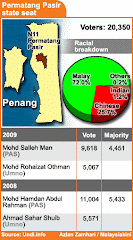

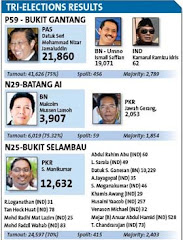

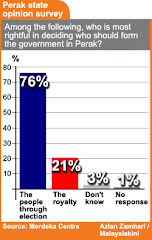

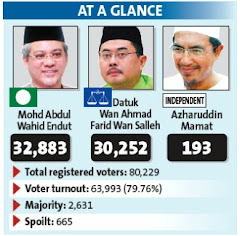


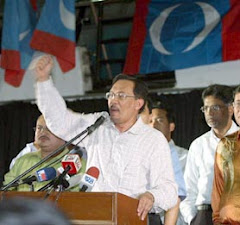
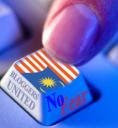
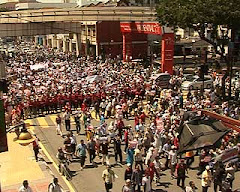

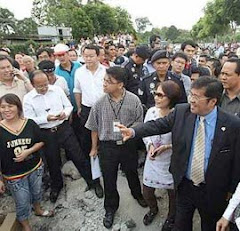
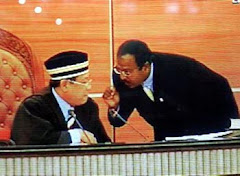


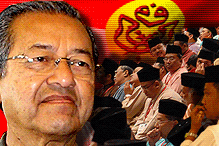

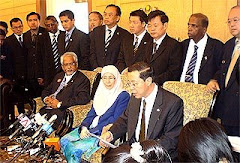
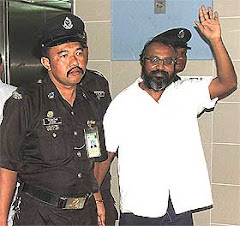
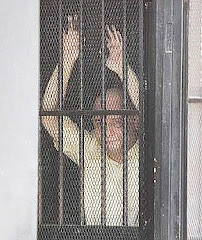


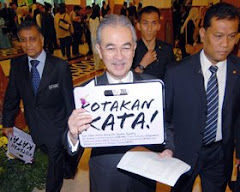
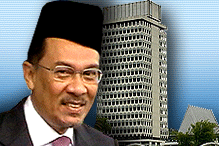
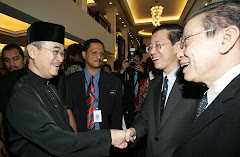






No comments:
Post a Comment